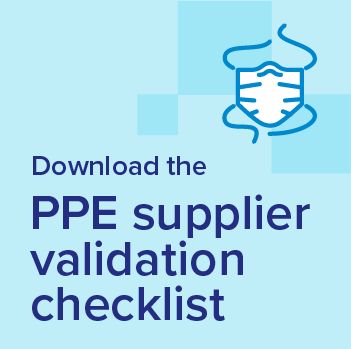Masking and PPE
Find out more about PPE and where and when to use it
Masking policies
Public Health Ontario provides guidance on universal masking for patients and visitors and for health-care workers providing direct patient care during periods of high risk for respiratory virus transmission, including fall and winter.
As private entities, health-care practices may choose to adopt a masking policy for staff. A masking policy can require staff to continue universal masking unless they have an accommodation under the Ontario Human Rights Code, such as a medical exemption.
In addition to requiring masking for staff, health-care practices can also require masking for patients. Patients should be informed of this expectation when making an appointment, and your office should have masks available to provide if needed.
PPE use when providing direct care for patients with acute respiratory infections
A well-fitting medical mask is recommended, along with eye protection, gloves and gown, when providing care to patients who screen positive for acute respiratory infections. A fit-tested seal-checked N95 respirator may also be used based on point of care risk assessment such as when performing an aerosol generating medical procedure (AGMP).
Public Health Ontario provides guidance on the use of PPE in their Best Practices for the Prevention of Acute Respiratory Infection Transmission in All Health Care Settings document. Individual institutions may also have their own PPE policies above and beyond those recommended here (such as universal masking).
Choosing PPE in hospital and long-term care homes
Physicians and other health-care workers in hospitals and long-term care homes can use their professional and clinical judgment, based on their point-of-care risk assessment, to determine what health and safety measures are required in the delivery of care, including use of an N95 respirator. The public hospital or long-term care home cannot unreasonably deny access to the appropriate PPE.
Employer responsibilities: wearing and using PPE safely
If you work in a health-care organization, your employer or workplace must provide training on how to properly wear and use PPE, including how to put it on (don) and take it off (doff) safely. As an employer, you have a responsibility to ensure your staff are educated on how to wear and use PPE safely.
Fit testing N95s
Options for fit testing staff include:
- Engage an external fit testing provider.
- Identify staff to become designated fit-testers and participate in train the trainer education provided by Public Services Health & Safety Association
Employers can fit test staff to masks available through regular suppliers, or if needed, request N95 supply to support fit testing from the provincial stockpile. Ensure that you have fit testing support available before you request masks for fit testing.
Expired or donated respirators may be provided for fit testing. Members should confirm the expiry date of any supply received.
Additional products and services available for members
OMA members get access to exclusive savings from our partners. Explore these relevant resources, products and services.
